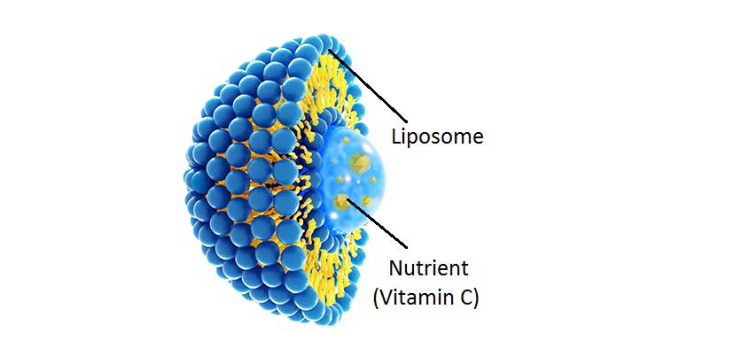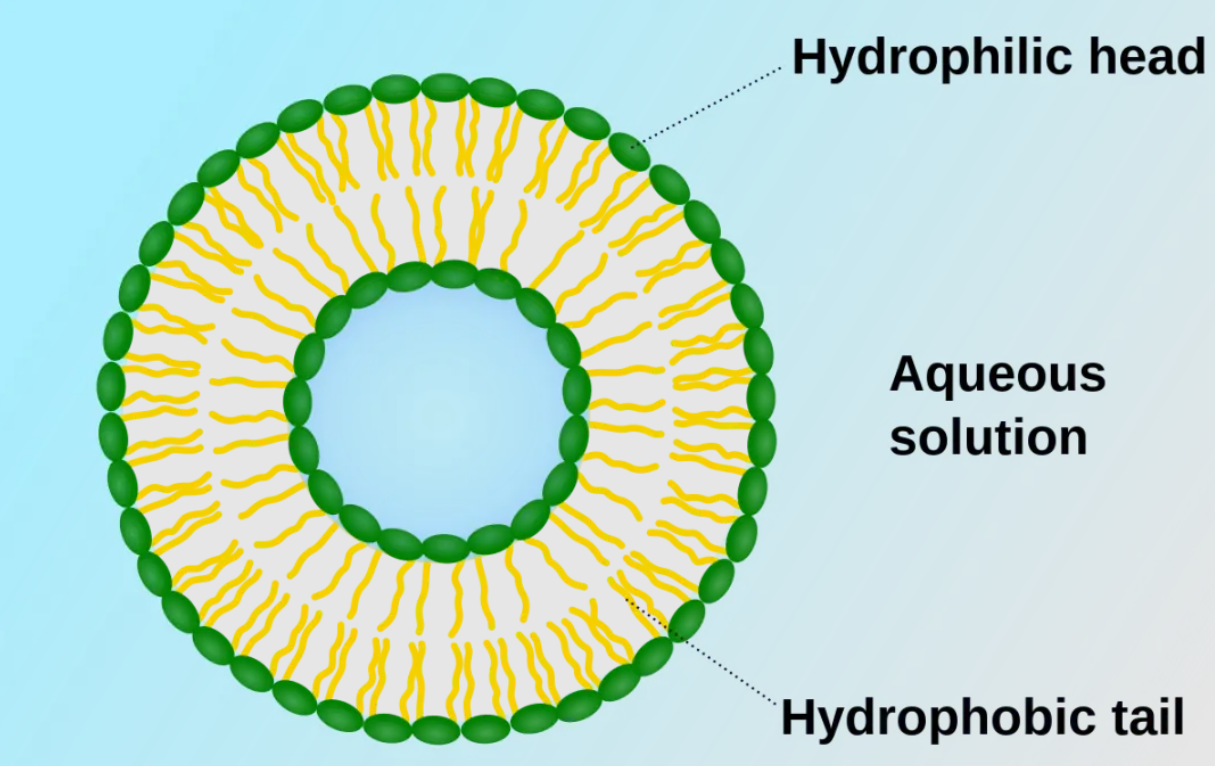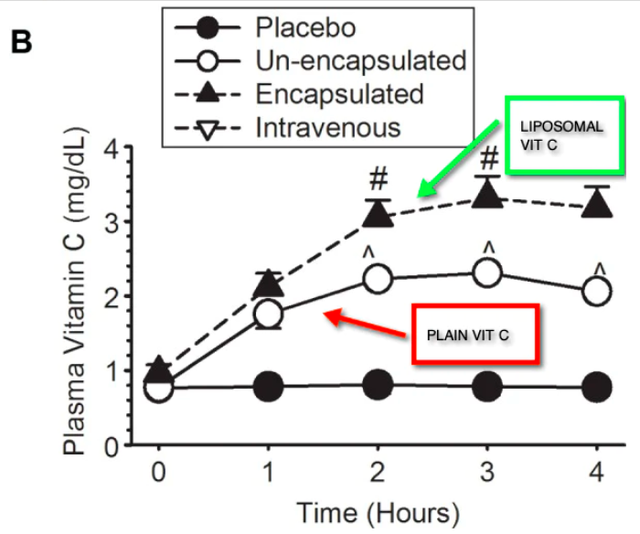
● What is Liposomal Vitamin C ?
Liposome is a small lipid vacuole similar to cell membrane, its outer layer is composed of a double layer of phospholipids, and its internal cavity can be used to transport specific substances, when the liposome carries vitamin C, it forms liposome vitamin C.
Vitamin C, encapsulated in liposomes, was discovered in the 1960s. This novel delivery mode provides a targeted therapy that can deliver nutrients into the bloodstream without being destroyed by digestive enzymes and acids in the digestive tract and stomach.
Liposomes are similar to our cells, and the phospholipids that make up the cell membrane are also the shells that make up the liposomes. The inner and outer walls of liposomes are composed of phospholipids, most commonly phosphatidylcholine, which can form lipid bilayers. The bilayer phospholipids form a sphere around the watery component, and the outer shell of the liposome mimics our cell membrane, so the liposome can "fuse" with certain cellular phases on contact, transporting the contents of the liposome into the cell.
Encasing vitamin C within these phospholipids, it fuses with cells responsible for absorbing nutrients, called intestinal cells. When liposome vitamin C is cleared from the blood, it bypasses the conventional mechanism of absorption of vitamin C and is reabsorbed and utilized by cells, tissues and organs of the whole body, which is not easy to lose, so its bioavailability is much higher than that of ordinary vitamin C supplements.

● Health Benefits of Liposomal Vitamin C
1.Higher bioavailability
Liposome vitamin C supplements allow the small intestine to absorb more vitamin C than regular vitamin C supplements.
A 2016 study of 11 subjects found that vitamin C encapsulated in liposomes significantly increased blood vitamin C levels compared to an unencapsulated (non-liposomal) supplement of the same dose (4 grams).
Vitamin C is wrapped in essential phospholipids and absorbed like dietary fats, so that the efficiency is estimated at 98%. Liposomal vitamin C is second only to intravenous (IV) vitamin C in bioavailability.

2.Heart and brain health
According to a 2004 analysis published in the American Journal of Clinical Nutrition, vitamin C intake (through diet or supplements) reduces the risk of cardiovascular disease by about 25%.
Any form of vitamin C supplement can improve endothelial function and ejection fraction. Endothelial function involves contraction and relaxation of blood vessels, enzyme release to control blood clotting, immunity, and platelet adhesion. Ejection fraction is the "percentage of blood that is pumped (or ejected) from the ventricles" when the heart contracts with each heartbeat.
In an animal study, liposomal vitamin C administered before blood flow restriction prevented damage to brain tissue caused by reperfusion. Liposomal vitamin C is almost as effective as intravenous vitamin C in preventing tissue damage during reperfusion.
3.Cancer Treatment
High doses of vitamin C can be combined with traditional chemotherapy to fight cancer, it may not be able to eradicate cancer on its own, but it can definitely improve the quality of life and increase energy and mood for many cancer patients.
This liposome vitamin C has the advantage of preferential entry into the lymphatic system, giving large amounts of vitamin C to the white blood cells of the immune system (such as macrophages and phagocytes) to fight infections and cancer.
4.Strengthen immunity
Immunity boosting functions include:
Enhanced antibody production (B lymphocytes, humoral immunity);
Increased production of interferon;
Enhanced autophagy (scavenger) function;
Improved T lymphocyte function (cell-mediated immunity);
Enhanced B and T lymphocyte proliferation. ;
Enhance the activity of natural killer cells (very important anticancer function);
Improve prostaglandin formation;
Nitric oxide increased;
5.Improved skin effect is better
Uv damage is one of the main causes of skin aging, damaging the skin's support proteins, structural proteins, collagen and elastin. Vitamin C is an essential nutrient for the production of collagen, and liposome vitamin C plays a role in improving skin wrinkles and anti-aging.
A December 2014 double-blind placebo-controlled study evaluating the effects of liposome vitamin C on skin tightness and wrinkles. The study found that people who took 1,000 mg of liposomal vitamin C daily had a 35 percent increase in skin firmness and an 8 percent decrease in fine lines and wrinkles compared with a placebo. Those who took 3,000 mg a day saw a 61 percent increase in skin firmness and a 14 percent reduction in fine lines and wrinkles.
This is because phospholipids are like the fats that make up all cell membranes, so liposomes are efficient at transporting nutrients to skin cells.

● NEWGREEN Supply Vitamin C Powder/Capsules/Tablets/Gummies




Post time: Oct-16-2024





